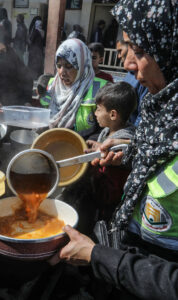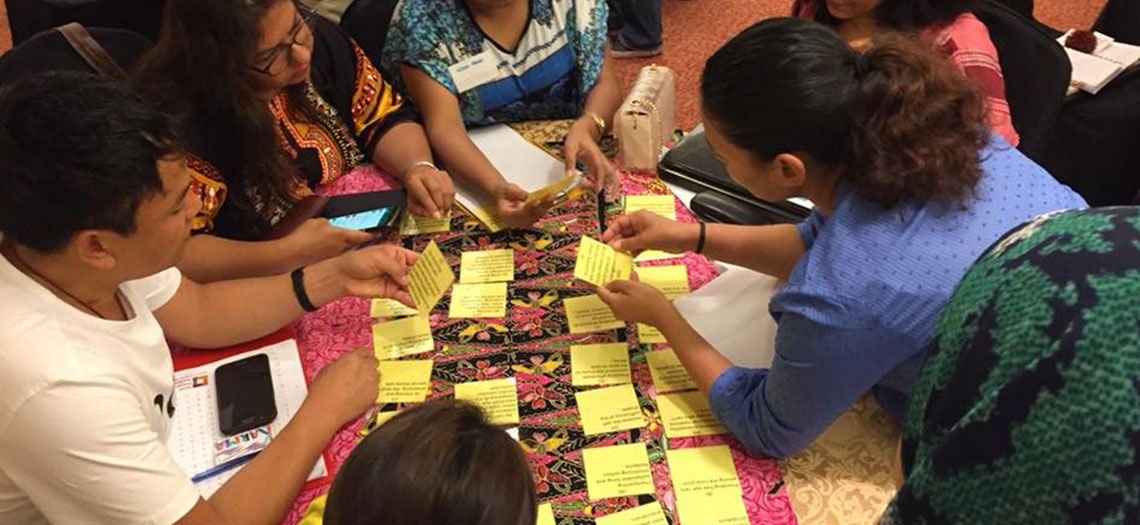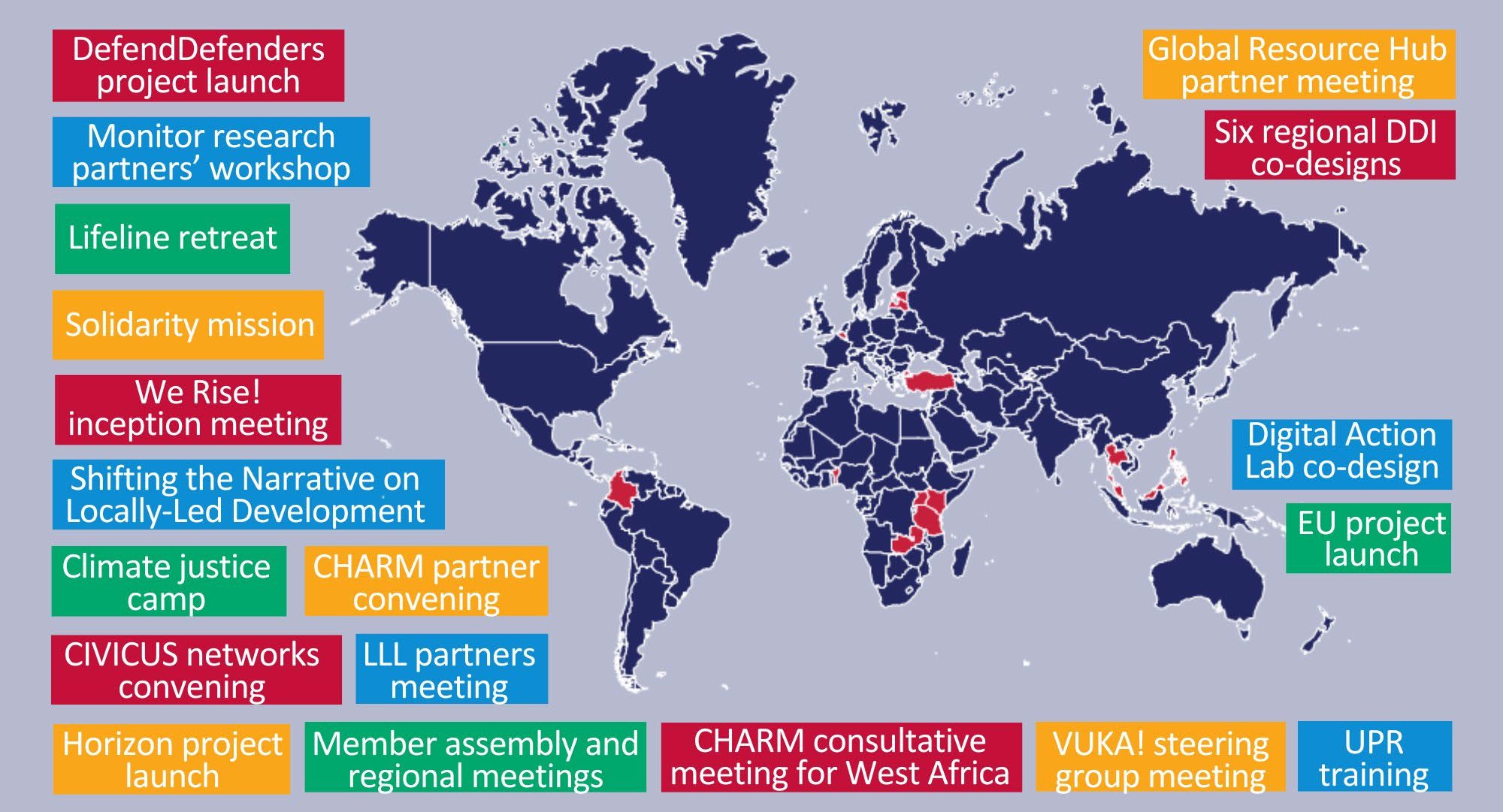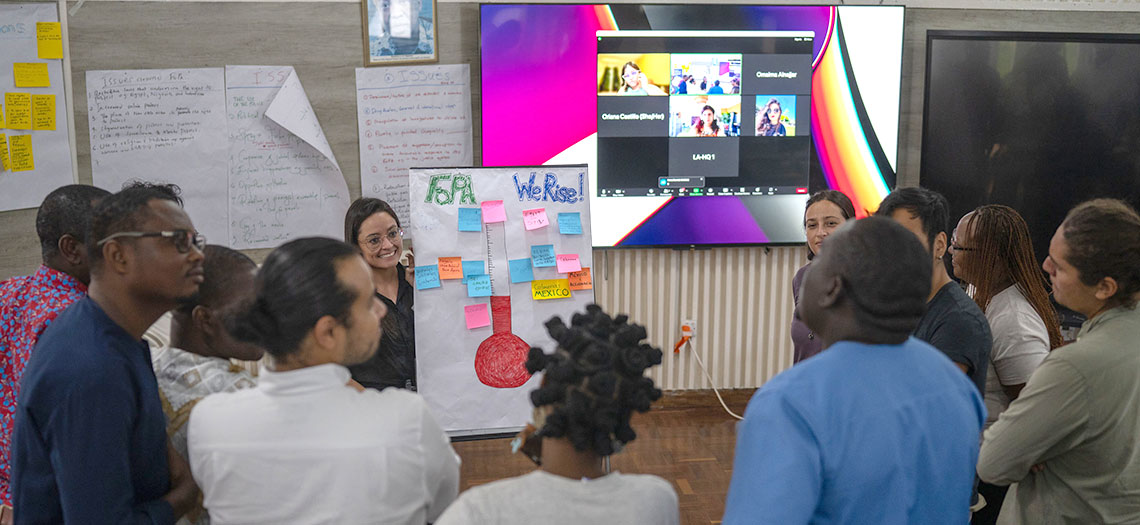Table of Contents
Strengthen the civil society ecosystem

Through the Crisis Response Fund, we provided 29 advocacy and resilience grants to support responses to civic space restrictions in countries including Afghanistan, Argentina, Azerbaijan, Benin, Colombia, Haiti, Israel, Jordan, Lebanon, Mali, Mozambique, Rwanda, Sudan, Syria, Turkmenistan, Uganda, Venezuela and Yemen. To increase our impact, we contributed to joint advocacy with donors to ensure a holistic, protective and context-sensitive approach to funding. We used quarterly meetings of the Lifeline Donor Steering Committee as an opportunity to support partners’ advocacy efforts and appeal to the 20 governments and two foundations that fund Lifeline to focus their support on efforts to address civic space restrictions.
As part of two different consortia, we secured European Union (EU) funding for a project to work with civil society to identify and respond to deteriorating civic space conditions. The first component of the project focuses on monitoring and research and aims to establish an early warning mechanism and produce annual country assessment reports. Its second component is a flexible support mechanism that will provide funding for civil society initiatives to prevent and resist deterioration and promote improvements in civic freedoms in 80 countries.
We continued to strengthen the civil society ecosystem through the DDI, a large, interconnected programme aimed at supporting internet access and online safety for grassroots civil society groups and empowering them to use digital technologies effectively. Our outreach strategy, implemented through the Digital Action Lab, prioritised those facing the double challenge of restricted civic space and structural discrimination. The call for the 2024 Digital Action Lab received 1,500 applications. Nine participants were selected to receive tailored coaching, networking opportunities and funding to implement digital solutions for inclusive democracy.
Through DDI, we engaged 430 people working at the local and regional levels in six global regions – East Asia, Eastern Europe and Central Asia, Latin America, the Middle East and North Africa, South Asia and Sub-Saharan Africa – in co-design workshops to generate ideas that were refined into 12 prototypes. Two prototypes, one financial and one non-financial, will now be implemented in each of the regions.
Through the LLL pilot initiative, we worked on reforming resourcing to better support grassroots and local groups. In collaboration with the Network for Empowered Aid Response (NEAR) network, we held an event to discuss and agree priorities for this work with community leaders from both networks in Nairobi, Kenta in July 2023. Through LLL we are addressing a gap that we identified in the available of local-level spaces for people to convene and discuss their demands and requirements, and what is needed to meet them. In March 2024, we convened our LLL partners, who worked together over four days to set the parameters of the initiative, including its purpose, approach and expected outcomes. One of the LLL Partners, CAPAIDS Uganda, is reaching and actively engaging with local groups in remote areas of the country.

Convening Highlights

Supporting locally led development
In 2024, we commissioned a study to assess the extent to which we are influencing development ecosystems with a locally led ethos. The study found evidence that messaging and strategic outreach has contributed to improved funding, the inclusion of local groups in convenings and consultations and the development of valuable guidance and resources.
Among our contributions, together with partners including the Movement for Community-Led Development, NEAR and Peace Direct, we helped develop a donor statement on locally led development. This was launched in 2022 and has gained 50 signatories over the past year. Our 2019 paper on shifting power and resources to grassroots movements was also cited as influential by key bodies, including Oxfam and the Swedish International Development Cooperation Agency. In January 2024, we launched a one-year Donor Transformation Challenge, inviting individuals and groups to help fund and enable institutions to dismantle outdated and oppressive mindsets, practices and systems.
We held consultations and dialogues for global south groups to inform the locally led development strategy. One such dialogue, hosted by the LLL Initiative, brought together local grassroots leaders and funders in learning sessions focused on shifting the narrative on locally led development.
Alongside members and partners, we supported open letters to funders, including one to the Organisation for Economic Co-operation and Development (OECD) calling for the removal of legal and regulatory barriers to funding for global south CSOs. We published a joint letter to international partners outlining five principles for making convening more inclusive. In response, 36 donors, international CSOs and philanthropic organisations formally committed to improving their practices. We then co-facilitated a process with members from the global south to produce a guide with practical recommendations for implementing the principles outlined in the letter. We also worked to influence the policies and frameworks of donors such as the Netherlands Ministry of Foreign Affairs, OECD and United States Agency for International Development.
We will continue to advocate for and support access and meaningful participation of diverse local groups in relevant policy spaces where decisions affecting them are made.

Ecosystem Strengthening Highlights
